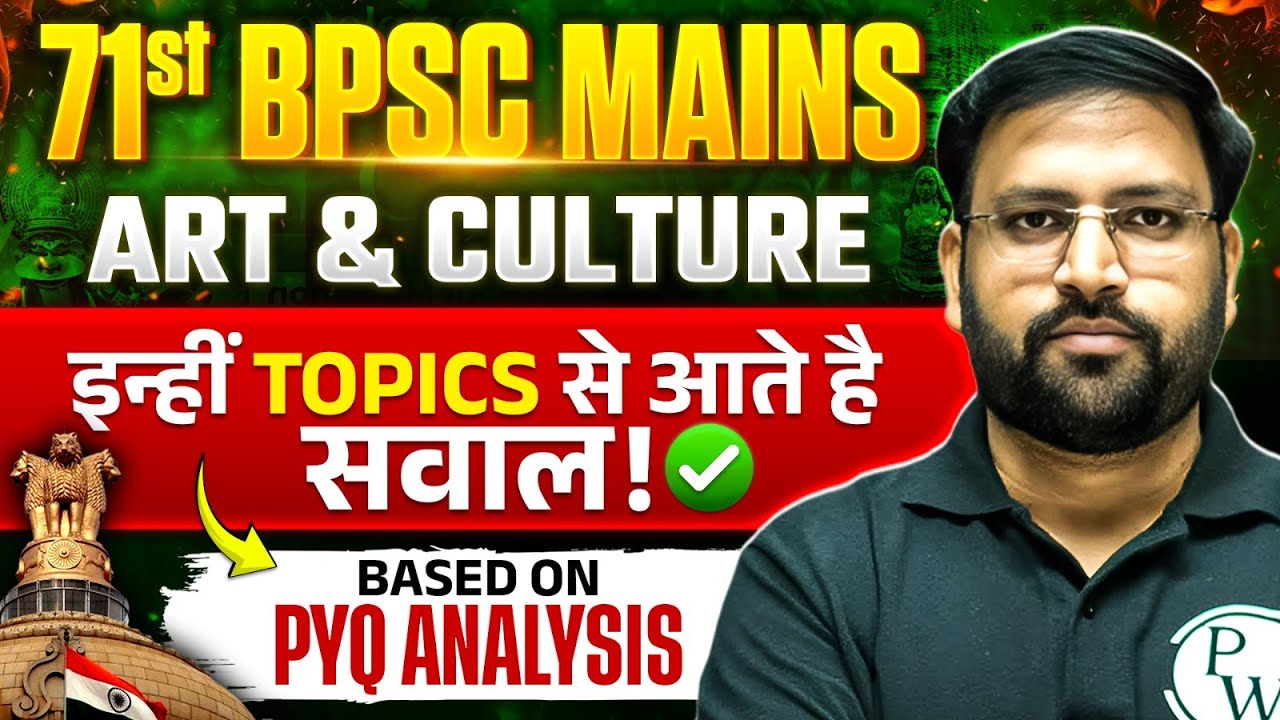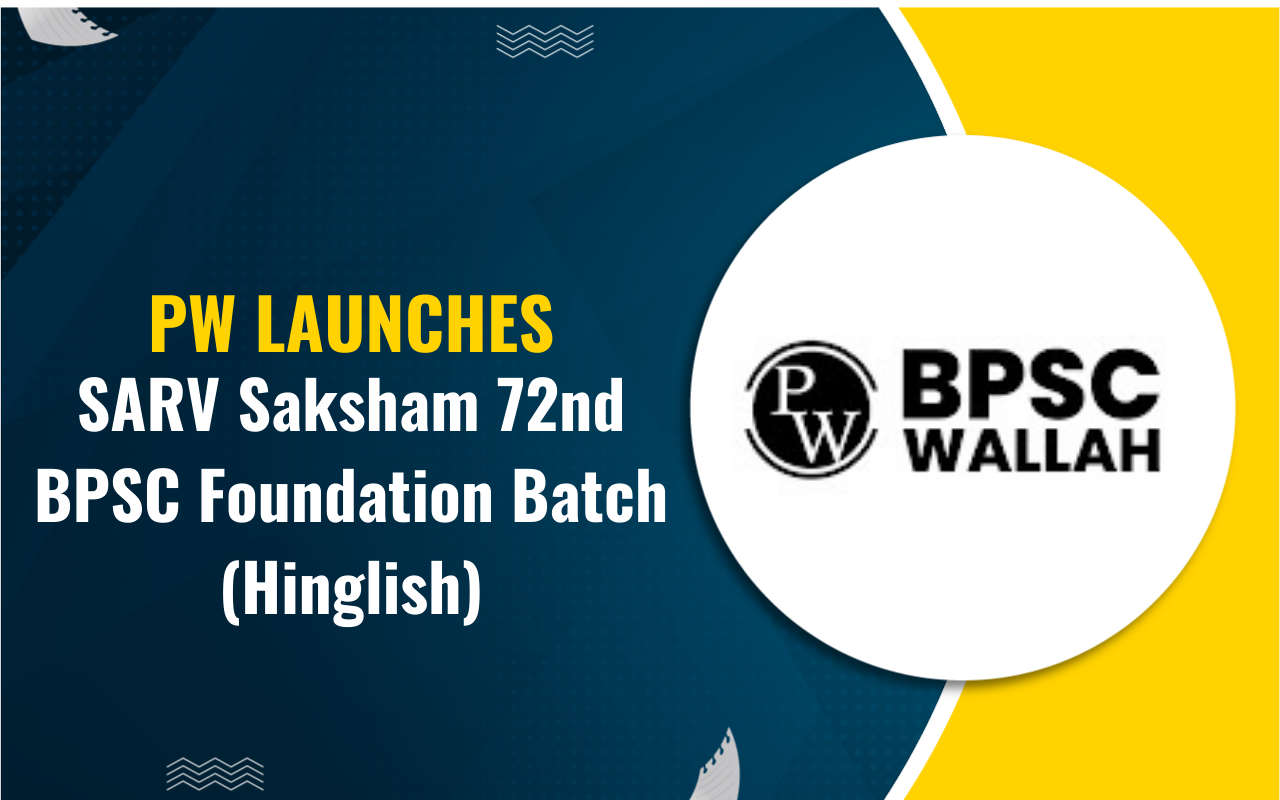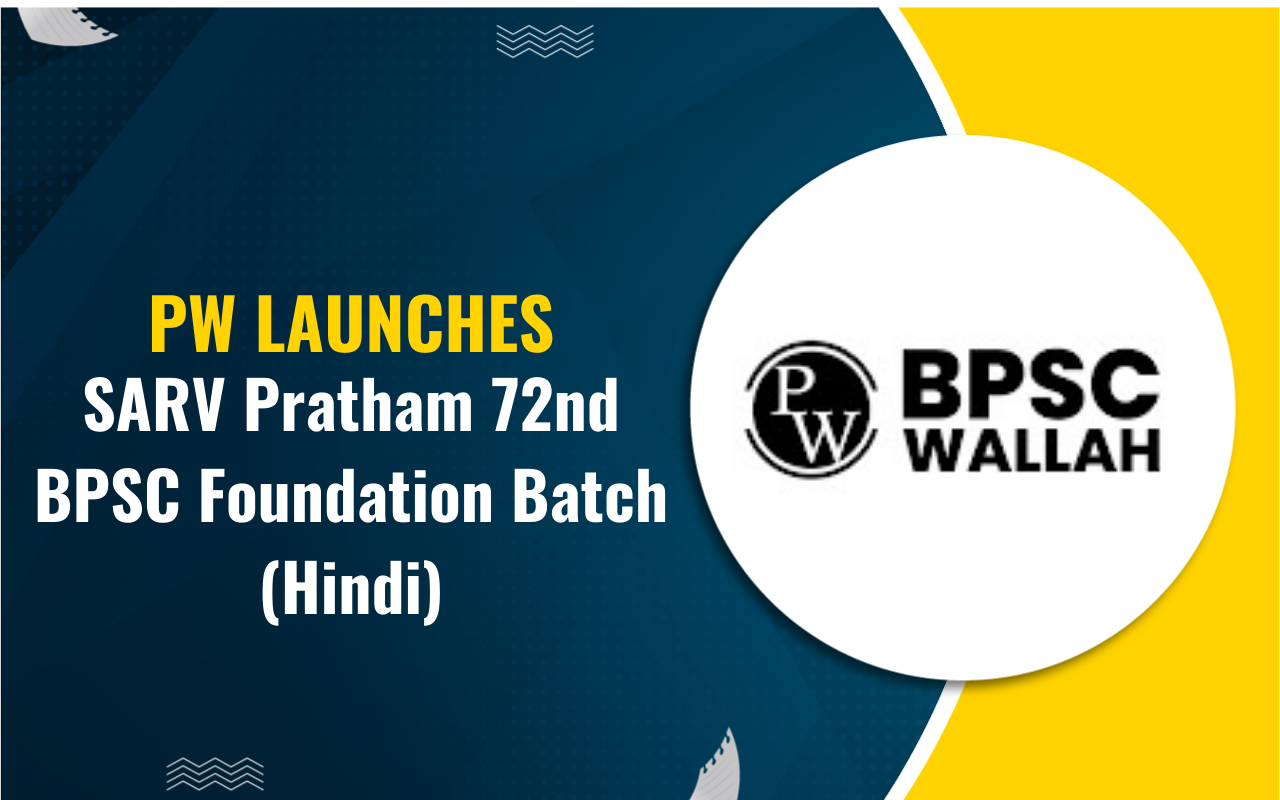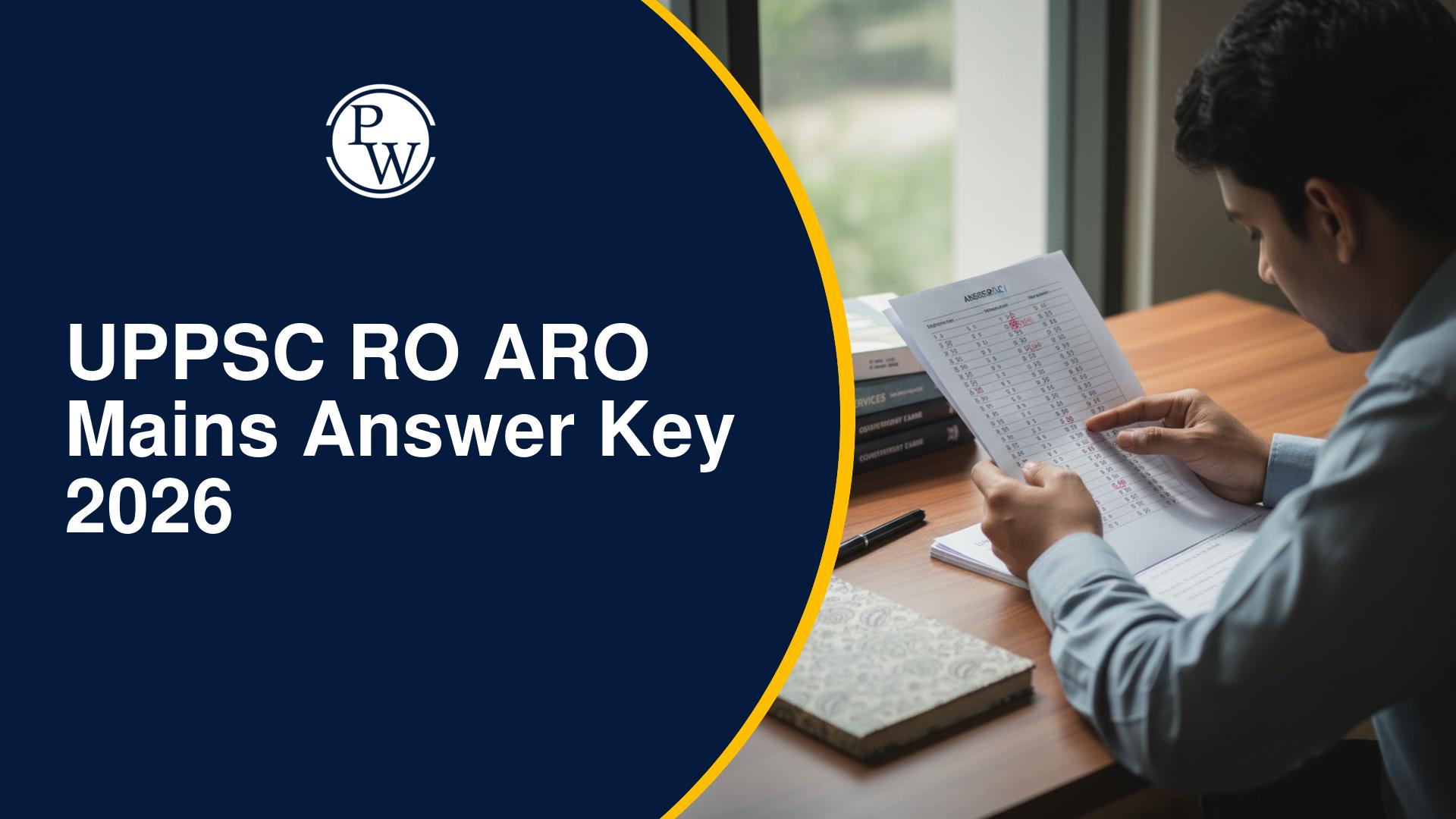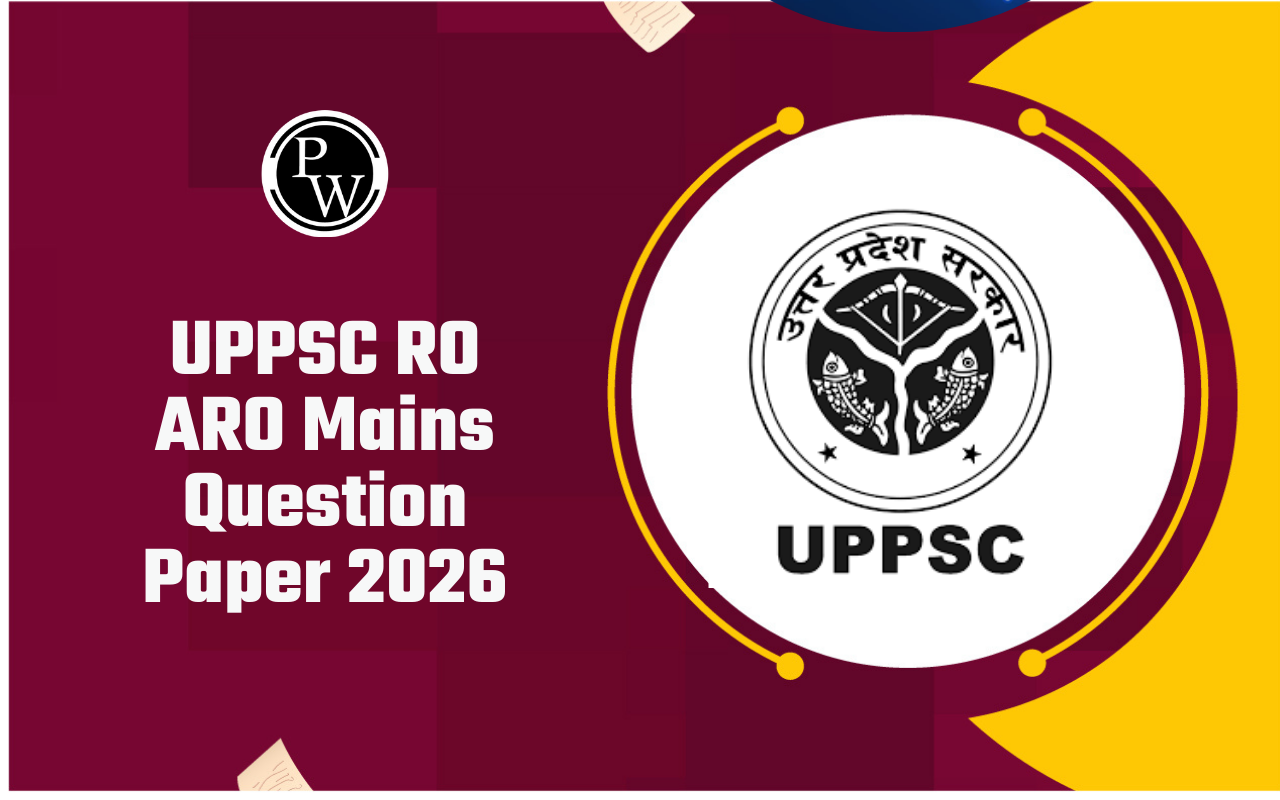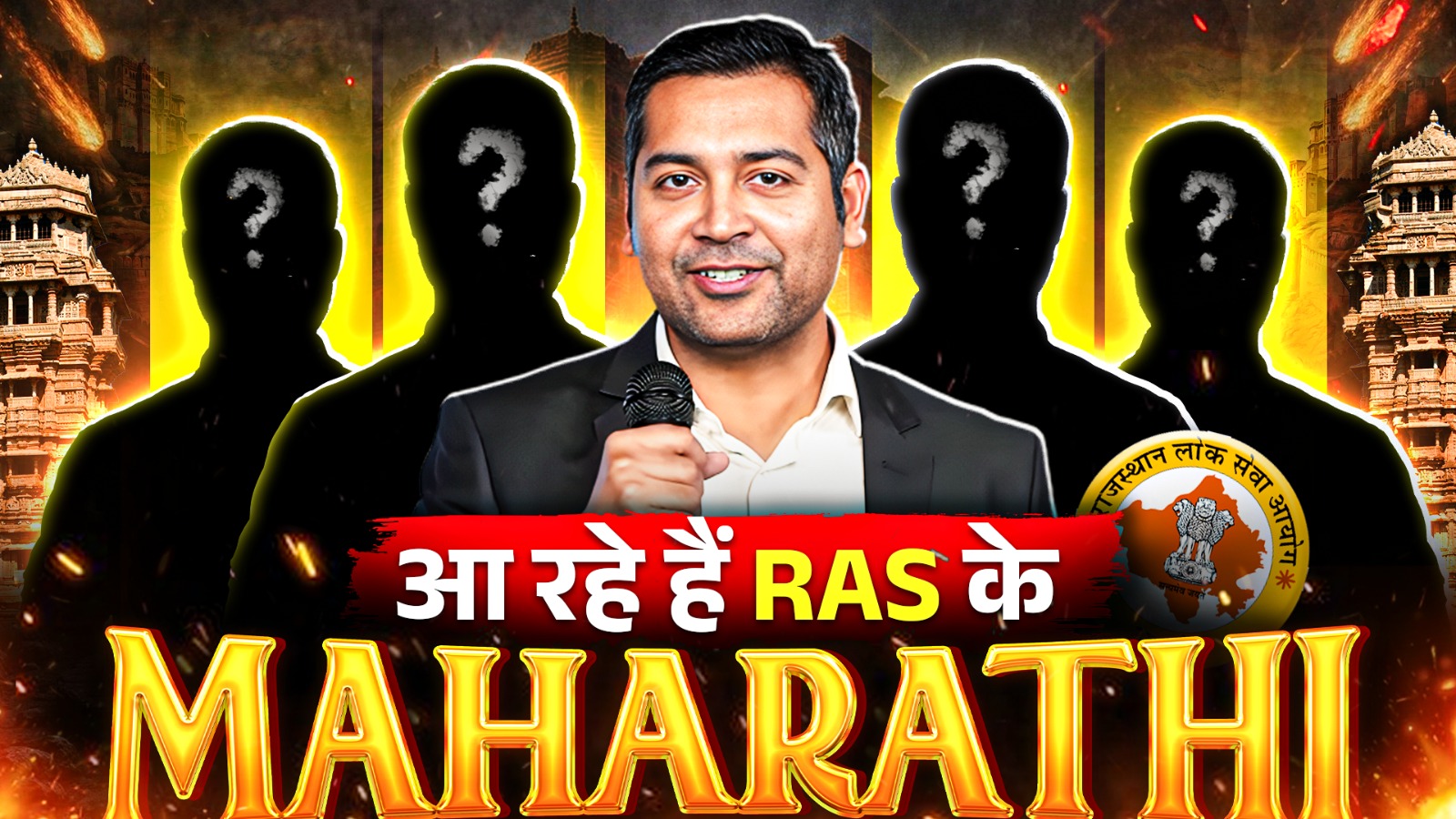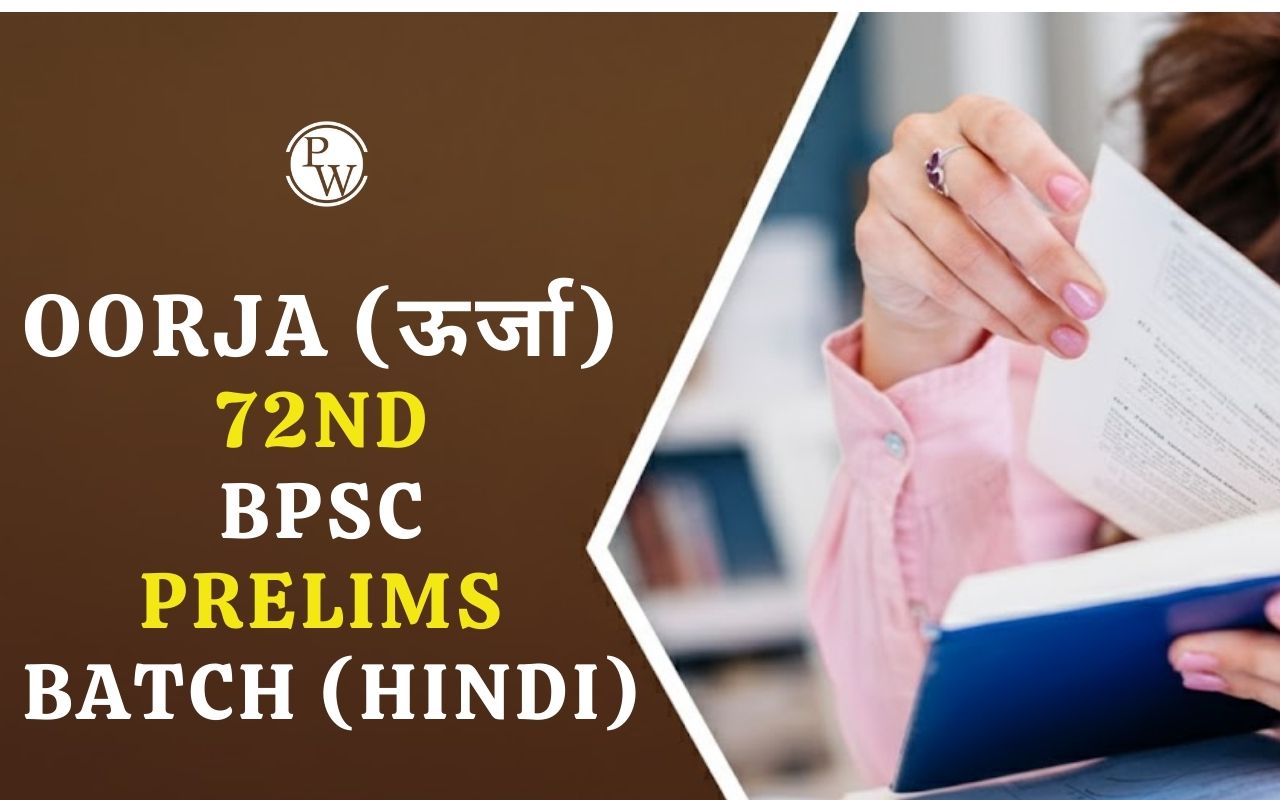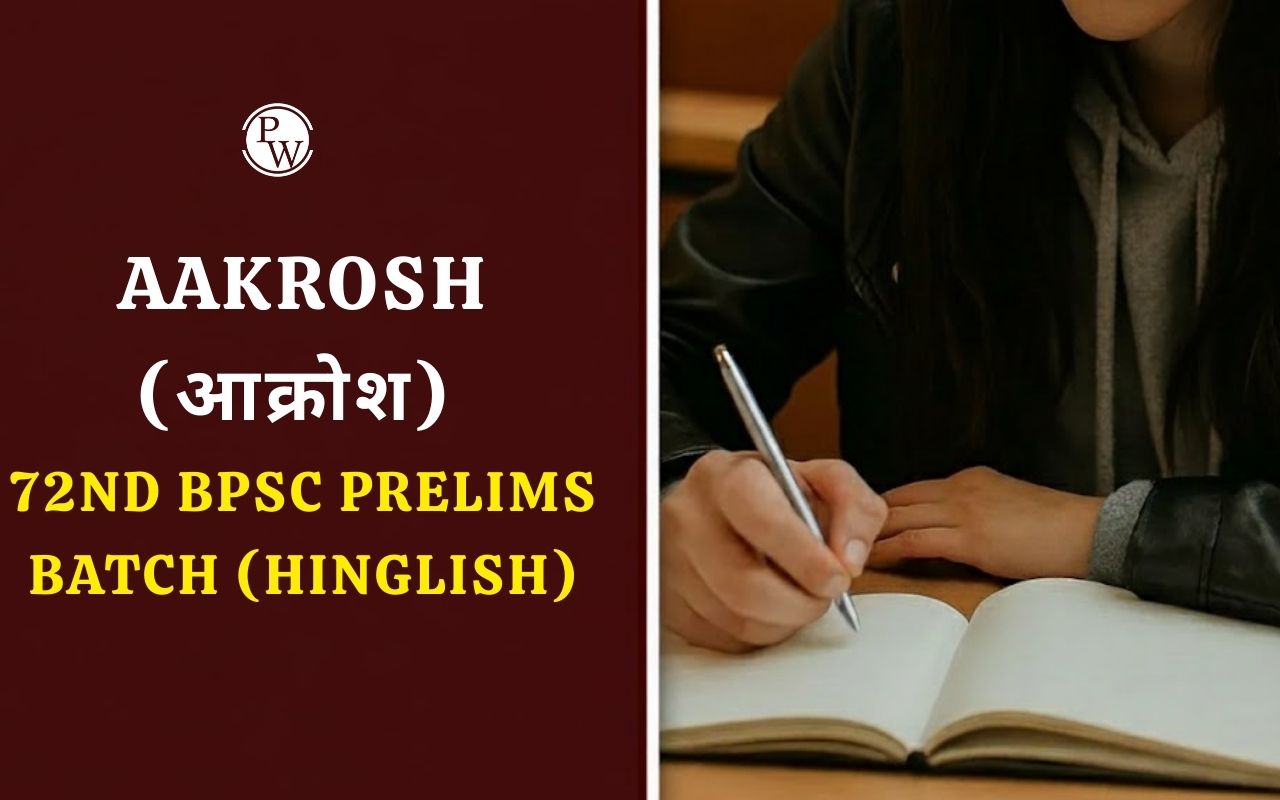Punjab PCS Syllabus 2025:
The Punjab Public Service Commission will administer the
Punjab PCS Exam 2025
to recruit 322 Officers positions in various grades and services to the departments of the Punjab Government.
The Punjab PCS Exam consists of three stages viz. Prelims, Mains, and Interview phases. The Commission has specified the comprehensive syllabus for Punjab PCS Prelims and Mains under the detailed notification.
Candidates must have a thorough understanding of the Punjab PCS Syllabus 2025 to curate an effective study plan. The syllabus for Punjab State Civil Services Combined Competitive Examination-2025 is designed to assess the knowledge of aspirants across various subjects relevant to civil services. We have compiled a detailed Punjab PCS Syllabus and Exam Pattern 2025 for the sake of the ease of aspirants.
Punjab PCS Syllabus 2025
The Punjab PCS Syllabus consists of a wide range of topics on which the questions will be framed in the examination. Candidates who wish to crack this prestigious examination must kick start their preparation by reviewing the entire syllabus.
A proper understanding of the syllabus is crucial for aspirants to optimize the preparation strategy accordingly. A detailed coverage of the topic-wise syllabus is outlined here to aid the preparation of candidates.
|
Punjab PCS Syllabus 2025 Overview
|
|
Exam Conducting Authority
|
Punjab Public Service Commission
|
|
Exam Name
|
Punjab State Civil Services Combined Competitive Examination-2025 (PSCSCCE-2025)
|
|
Category
|
Syllabus and Exam Pattern
|
|
Selection Process
|
Prelims, Mains & Interview
|
|
Exam Mode
|
Offline
|
|
Negative Marking
|
No
|
|
Total Marks
|
-
Prelims - 400
-
Mains - 1350
-
Interview - 150
|
Punjab PCS Syllabus 2025 PDF
The Punjab Public Service Commission has released the Punjab PCS Syllabus 2025 PDF on the official website, ppsc.gov.in. The syllabus PDF consists of a range of topics from different subjects to evaluate the candidate's knowledge in General Studies, Aptitude, History, Polity, Economics, Indian Constitution, Environment, Science and Technology, etc. Candidates must click on the direct link here to download the Punjab PCS Syllabus and Exam Pattern 2025 PDF.
Punjab PCS Syllabus 2025 PDF
Punjab PCS Prelims Exam Pattern 2025
The prelims exam for Punjab PCS is a objective-based paper consists of two papers i.e. Paper 1 (General Studies) and Paper 2 (Civil Services Aptitude Test) carries 200 marks each. Paper 1 consists of 100 questions worth 2 marks each and Paper 2 will have 80 questions worth 2.5 marks each. There will be no negative marking for wrong answers. The CSAT paper is qualifying in nature for which candidates need to obtain at least 40% marks to qualify.
|
Punjab PCS Prelims Exam Pattern 2025
|
|
Paper
|
Subject
|
Number of Questions
|
Marks Per Question
|
Total Marks
|
Duration
|
|
Paper 1
|
General Studies
|
100
|
2
|
200
|
2 hours
|
|
Paper 2
|
Civil Services Aptitude Test (CSAT)
|
80
|
2.5
|
200
|
2 hours
|
Punjab PCS Prelims Syllabus 2025
The Punjab PCS Prelims Syllabus consists of Paper 1 and Paper 2 which cover a variety of topics from different subjects as follows:
Punjab PCS Prelims General Studies Paper 1 Syllabus
The Punjab PCS Prelims Paper 1 Syllabus includes various topics including Everyday Science, Environmental Studies, Political theory & international order, Indian polity, History of India, Indian Economy and Geography, etc. The subject-wise bifurcation for the Paper 1 syllabus is tabulated below:
|
Punjab PCS Prelims GS Paper 1 Syllabus 2025
|
|
Subject
|
Topics
|
|
Everyday Science
|
-
States of matter, structure of atoms, versatile nature of carbon
-
Acids, bases, salts, corrosion in metals, action of soaps
-
Life on Earth:
evolution, marine & terrestrial life
-
Human body and life processes, nutrition, disease—its causes & prevention, infectious diseases, lifestyle diseases
-
Public health initiatives, mother and child health, immunization & vaccination, HIV-AIDS, TB, polio
-
Force-laws of motion & gravitation, Archimedes principle
-
Energy kinetics & potential
-
Light—reflection & refraction—concepts and applications. Sound: propagation & reflection—concepts and applications. Electric current: concepts and applications
-
Computers and telecommunications: concepts and applications
|
|
Environmental Studies
|
-
Composition and structure of the atmosphere. Solar system: heat balance & temperature
-
Atmospheric circulation & weather system, water cycle
-
Climate change: fossil fuels, greenhouse gases, renewable energy, clean development mechanisms, carbon credits.
-
Water: oceans, rivers, glaciers, lakes, groundwater, etc. Biodiversity & conservation
-
Soil: types, crops, food chain, etc. Pollution and toxicity
|
|
Political Theory & International Order
|
-
Basic concepts of freedom, equality, social justice, rights & duties, citizenship, nationalism, secularism, etc.
-
United Nations and its organs/agencies, other international organizations like the World Bank, IMF, WTO, EU, G20, BRICS, etc. and their role in world peace, trade, & development.
|
|
Indian Polity
|
-
Basic features, provisions, schedules of the Indian Constitution, key amendments
-
Panchayati Raj. Elections—People’s Representation Act, electoral reforms. Rise of regionalism and coalition politics
-
Armed challenges to the Indian state since independence
|
|
History of India
|
-
The Indus Valley Civilization
-
The Aryan and the Vedic age. Jainism and Buddhism
-
The Maury and Gupta periods
-
The advent of Islam and Sultanate period (political, social, & cultural). The Bhakti Movement
-
The Mughals (political, social, & cultural till Aurangzeb)
-
The coming of the European powers and the advent of British rule. The Mutiny of 1857
-
The British rule and the Indian National Movement (1857–1947)
|
|
World History
|
-
The Renaissance and the Industrial Revolution in Europe. The American Revolution 1776
-
The French Revolution, 1789
-
The Russian Revolution 1917
-
World Wars I & II
|
|
Indian Economy
|
-
Indian economic development (1950-1991): key economic policies, public sector dominance, bank nationalization, etc
-
Five-year plans: key goals and main achievements
-
Liberalization, privatization and globalization era since 1991: key policies, decisions and results
-
Performance of Indian economy since 1991: growth, fiscal & revenue deficits, trade, commerce & balance of payments, inflation, growth of service sector
-
Key challenges and responses: agriculture and food security, industrialization, poverty alleviation & employment, rural & urban infrastructure, social sector (health, education, etc.)
|
|
Geography
|
-
Population: distribution, density, growth, and comparison. Migration: types, causes and consequences
-
Human development. Human settlements. Land resources and agriculture
-
Water resources
-
Mineral and energy resources. Manufacturing industries
-
Planning and sustainable development in India. Transport and communication
-
International trade
-
Geographical perspective on selected issues and problems
|
|
General Knowledge of Punjab
|
-
Geography: Geographical and Agro-climatic regions, rivers, water resources, sharing of waters, demographics, human development indices
-
People, Society, and Cultur3: Major personalities in the history of Punjab, religious movements, major religions & spiritual personalities, Punjabi literature, folk or performing arts, fine arts and crafts
-
History:
-
Sufis, saints and gurus, Lodhis and Mughals, Sikh rulers, the British period, nationalist movement in Punjab, Punjab in independent India
-
Economy: Agriculture, animal husbandry, industrial & service sectors, major occupations, development & economic growth, public finance (including central-state fiscal issues), public sector institutions, cooperatives, etc.
|
|
Current Events of National and International Importance
|
Punjab PCS Prelims Paper 2 (CSAT) Syllabus
The Punjab PCS Prelims Paper 2 is a Civil Services Aptitude Test that includes various topics as follows:
|
Punjab PCS Prelims CSAT Syllabus
|
|
Subject
|
Topics
|
|
Civil Services Aptitude Test (CSAT)
|
-
Reading comprehension; Punjabi and English language comprehension, antonyms and synonyms, grammar, and sentence formation.
-
Interpersonal skills including communication skills.
-
Logical reasoning, analytical and mental ability.
-
Basic numerical skills; numbers, magnitudes, percentages, numerical relation appreciation.
-
Data analysis; Graphic presentations, charts, tables, spreadsheets.
Note:
The topics listed in the syllabus are only indicative for the general guidance of the candidates and cannot be deemed as an exhaustive list.
|
Punjab PCS Mains Exam Pattern 2025
Those who clear the Prelims Exam will have to appear for the Mains examination. The Punjab PCS Mains exam consists of seven papers from different subjects covering a total of 1350 marks. The time duration for each paper will be 3 hours.
|
Punjab PCS Mains Exam Pattern 2025
|
|
Paper
|
Name of Paper
|
Total Marks
|
Duration
|
|
Paper 1
|
Punjabi (in Gurmukhi Script) Compulsory (12th Standard)
|
100
|
3 hours
|
|
Paper 2
|
English Compulsory (12th Standard)
|
100
|
3 hours
|
|
Paper 3
|
Essay
|
150
|
3 hours
|
|
Paper 4
|
General Studies Paper-I (History, Geography, Society)
|
250
|
3 hours
|
|
Paper 5
|
General Studies Paper-II (Indian Constitution & Polity, Governance, International Relations)
|
250
|
3 hours
|
|
Paper 6
|
General Studies Paper-III (Economy, Statistics, Security Issues)
|
250
|
3 hours
|
|
Paper 7
|
General Studies Paper-IV (Science & Technology, Environment, Problem Solving, Decision Making)
|
250
|
3 hours
|
Punjab PCS Mains Syllabus 2025
The Punjab PCS Mains exam consists of seven papers aim to assess candidates' knowledge and skills across various subjects. The mains exam includes two compulsory i.e.
Punjabi
and
English
, each carrying 100 marks, focusing on language proficiency through comprehension, precis writing, essay writing, translation, and grammar. The
Essay
paper, worth 150 marks, requires candidates to write essays on specified topics to demonstrate the writing ability and thinking of candidates.
English Language Paper Syllabus
The Punjab PCS English Language Paper consists of two sections worth 100 marks. The syllabus includes a variety of topics to evaluate the language proficiency of candidates.
|
Punjab PCS Mains English Language Paper Syllabus
|
|
Section
|
Topics
|
Total Marks
|
|
Section-A
|
Comprehension (Unseen Passage) (An unseen passage followed by Questions to be answered)
|
10 Marks
|
|
Precis writing (Passage to be summarized to 1/3rd)
|
10 Marks
|
|
Letter writing (200 words)
|
10 Marks
|
|
Essay writing (Any general topic 300 words)
|
10 Marks
|
|
Translation
|
10 Marks
|
|
Section-B
|
Grammar
|
50 Marks
|
|
Total
|
100 Marks
|
Punjabi Language Paper Syllabus
The Punjabi Language Paper for the Punjab PCS exam consists of a wide range of topics from different subjects worth 100 marks.
|
Punjab PCS Mains Punjabi Language Paper
|
|
Sl. No.
|
ਪ੍ਰਸ਼ਨ (Topics)
|
ਅੰਕ (Marks)
|
|
1
|
Comprehension Passage (Read the passage and answer the questions) [ਅਨੁਤਿਨਾ ਪੋਠਾ (ਪੇਪਰ ਨੂੰ ਪੜ੍ਹ ਕੇ ਪ੍ਰਸ਼ਨਾਂ ਦੇ ਉੱਤਰ ਦਿਓ)]
|
10 marks
|
|
2
|
Summary Writing (Write a summary using the given title within the prescribed word limit) [ਸੰਖੇਪ ਰਚਨਾ (ਪੇਪਰ ਦਾ ਭੁੱਖਵਾਂ ਸ਼ਿਰਲੇਖ ਦਿੱਤੇ ਹੋਏ ਇੱਕ ਵਿਹਾਈ ਸ਼ਬਦਾਂ ਵਿੱਚ ਸੰਖੇਪ ਰਚਨਾ)]
|
10 marks
|
|
3
|
Application or Letter in 200 Words [ਅਰਜੀ ਜਾਂ ਪੱਤਰ 200 ਸ਼ਬਦਾਂ ਵਿੱਚ]
|
10 marks
|
|
4
|
Essay Writing (Within 400 Words) [ਲੇਖ ਰਚਨਾ (400 ਸ਼ਬਦਾਂ ਵਿੱਚ)]
|
10 marks
|
|
5
|
Translation [ਅਨੁਵਾਦ]
|
10 marks
|
|
6
|
Grammar [ਵਿਵਾਕਰਣ]
|
50 marks
|
|
Total Marks
|
100 Marks
|
Punjab PCS Mains General Studies Paper I Syllabus
The General Studies I Syllabus for the Punjab PCS Mains exam consists of a range of topics from History, Geography & Society as tabulated below:
|
Punjab PCS Mains GS Paper I Syllabus
|
|
Subjects
|
Topics
|
|
History
|
-
History of the world: Events from the 18th century; industrial revolution, world wars, redraw of national boundaries, colonization, decolonization, political philosophies like Communism, Capitalism, Socialism
-
Indian culture- Salient aspects of Art Forms, Literature and Architecture from ancient to modern times
-
Modern Indian history from the middle of the eighteenth century until the present significant events, personalities and issues
-
Socio-religious reform movements with special reference to Punjab
-
The Freedom Struggle - its various stages and important contributors /contributions from different parts of the country with special reference to Punjab
-
Post-independence consolidation and reorganization within the country
-
History of Punjab: Ranjit Singh’s rise to power, civil and military administration and relations with the British, Annexation of Punjab with special reference to the causes and consequences of the Anglo-Sikh wars
|
|
Geography
|
-
Physical Geography: Salient features of the world’s physical geography. Distribution of key natural resources across the world (including South Asia and the Indian subcontinent); factors responsible for the location of primary, secondary, and tertiary sector industries in various parts of the world (including India)
-
Important Geophysical phenomena such as earthquakes, Tsunami, Volcanic activity, cyclones etc., geographical features and their location- changes in critical geographical features (including water-bodies and ice-caps) and in flora and fauna and the effects of such changes
-
Geography of Punjab: Physiographic details of Punjab; Geomorphic features of Punjab, Punjab’s strategic location with reference to International Border
-
Crops of Punjab; Modern concepts of Farming; Problems faced by Agriculturists/ Issues in Agriculture: Depletion of groundwater
|
|
Society
|
-
Salient Features of Indian Society, Diversity of India
-
Role of women and women’s organization, population and associated issues, poverty and developmental issues, urbanization, their problems and their remedies
-
Effects of globalization on Indian society
-
Social empowerment, communalism, regionalism & secularism
-
Ethics and Society: Essence, determinants and consequences of Ethics in human actions; dimensions of ethics; ethics in private and public relationships
-
Human Values – Role of family, society and educational institutions in inculcating values; lessons from the lives and teachings of great leaders and reformers- Gautam Buddha, Mahavira, Kabir, Guru Nanak; Swami Vivekananda, Jyotibha Phule, Ishwar Chandra Vidya Sagar and Mahatma Gandhi
-
Vulnerable sections of the population - Welfare schemes by the Centre and State of Punjab and their performance; Mechanisms, laws, institutions and Bodies constituted for their protection and betterment
-
Issues relating to the development and management of the Social Sector- Health, Education, and Human Resources; Issues relating to Poverty and Malnutrition
|
Punjab PCS Mains General Studies Paper II Syllabus
The Punjab PCS Mains Syllabus for General Studies Paper II consists of a range of topics from Indian Constitution, Polity, Governance and International Relations:
|
Punjab PCS Mains GS Paper II Syllabus
|
|
Subjects
|
Topics
|
|
Indian Constitution & Polity
|
-
Indian Constitution- historical underpinnings, evolution, features, amendments significant provisions and basic structure
-
Functions and responsibilities of the Union and the States, issues and challenges pertaining to the federal structure, devolution of powers and finances up to local levels and challenges therein
-
Separation of powers between various organs; Dispute redressal mechanisms and institutions
-
Comparison of the Indian constitutional scheme with that of other countries
-
Parliament and State Legislatures - structure, functioning, conduct of business, powers & privileges and issues arising out of these structure, organization and functioning of the Executive and the Judiciary; Ministries and Departments of the Government; pressure groups and formal/informal associations and their role in the Polity
-
Salient features of the Representation of People’s Act
-
Appointment to various Constitutional posts; Powers, functions and responsibilities of various Constitutional Bodies
-
District Administration - Evolution of District Administration; Panchayati Raj Institutions and Urban Local Bodies
|
|
Governance
|
-
Statutory, regulatory and various quasi-judicial bodies
-
Government policies and interventions for development in various sectors and issues arising out of their design and implementation; Development processes and the development organizations- the role of NGOs, SHGs, donors, charities, institutional and other stakeholder
-
Important aspects of governance, transparency and accountability, e-governance applications, models, successes, limitations and potential; citizens charters, transparency & accountability and institutional and other measures; Role of civil services in a democracy; Changing trends in Governance
-
Values and Ethics in Governance- Ethical concerns and dilemmas in government and private institutions; laws, rules, regulations and conscience as sources of ethical guidance; accountability and ethical governance; strengthening of ethical and moral values in governance; ethical issues in international relations and funding
-
Probity in Governance: Concept of Governance; Philosophical basis of governance and probity; corporate governance; Information sharing and transparency in government, Right to Information, Codes of Ethics, Codes of Conduct, Citizen’s Charters, Work culture, Quality of service delivery, Utilization of public funds, challenges of corruption
|
|
International Relations
|
-
India and its neighborhood- relations; Bilateral, regional and global groupings and agreements involving India and/or affecting India’s interests
-
Effect of policies and politics of developed and developing countries on India’s interests, Indian Diaspora
-
Important International institutions, agencies and forum- their structure and mandate.
|
Punjab PCS Mains General Studies Paper III Syllabus
The Punjab PCS Mains General Studies Paper III Syllabus includes topics from Economy, Statistics and Security Issues as follows:
|
Punjab PCS Mains GS Paper III Syllabus
|
|
Subjects
|
Topics
|
|
Indian Economy
|
-
Issues relating to planning, mobilization of resources, growth, development and employment; sustainable development; Inclusive growth and issues arising from it; Government Budgeting.
-
Major crops, cropping patterns in various parts of the country, different types of irrigation and irrigation systems; storage, transport and marketing of agricultural produce- issues and related constraints; e-technology in the aid of farmers; Issues related to direct and indirect farm subsidies and minimum support prices; Technology missions; economics of animal rearing
-
Public Distribution System- objectives, functioning, limitations, revamping; issues of buffer stocks and food security;
-
Food processing and related industries in India- scope and significance, location, upstream and downstream requirements, supply chain management
-
Land reforms in India; Effects of liberalization on the economy, changes in industrial policy and their effects on industrial growth
-
Infrastructure- Energy, Ports, Roads, Airports, Railways
-
Human Resource Development: Importance of Human capital in economic development, Nature, types and problems of unemployment in India, Trends of Employment in India, Skill Development and demographic dividend
|
|
Punjab Economy: Planning Statistical Analysis, Graphs and Diagrams
|
This part will test the candidate’s ability to draw conclusions from information presented in statistical, graphical or diagrammatical form and to interpret the same.
|
|
Issues Related to Security
|
-
Linkages between development and spread of extremism; Role of external, State and non-state actors in creating challenges to internal security; Challenges to internal security through communication networks; role of media and social networking sites in internal security challenges
-
Basics of cyber security; money-laundering and its prevention; Security challenges and their management in border areas; linkages of organized crime with terrorism
-
Various Security forces and agencies and their mandate
|
Punjab PCS Mains General Studies Paper IV Syllabus
The Punjab PCS Mains General Studies Paper IV Syllabus includes topics from Science & Technology, Environment, Problem Solving & Decision Making as outlined below:
|
Punjab PCS Mains GS Paper IV Syllabus
|
|
Subjects
|
Topics
|
|
Science & Technology
|
-
Developments and applications of science and technology and their effects on everyday life
-
Achievements of Indians in science & technology; indigenization of technology and development of new technology
-
Recent developments in the fields of IT, Space, Computers, robotics, nanotechnology, etc
-
Issues relating to intellectual property rights
-
Modern Trends in Life Sciences
-
Progress of Agricultural Science and its impact– Introduction to Biotechnology and its applications; Veterinary and Animal Sciences- latest
developments
-
Introduction to and Applications of Genetic Engineering & Stem Cell Research
-
Human Diseases and Microbial infections; Common infections and preventive measures; preventive measures during out breaks; Immunity and vaccination
|
|
Environment
|
-
Conservation, environmental pollution and degradation, Issues related to Climate change; environmental impact assessment
-
Water Management- Issues in India; Present scenario, Methods and importance of water conservation
-
Definition, nature, types and classification of disasters
-
Natural Hazards: Floods, earthquakes, tsunamis, landslides, etc., Risk reduction and mitigation measures
|
|
Situations in Civil Service -Problem Solving and Decision Making
|
-
Tackling situations of Natural disasters, Major Accidents and Law and order, Controlling riots, Handling public protests, Land Acquisition and Rehabilitation, Designing Projects
-
Implementation of National Flagship Schemes and Programmes, Public Private Partnership in effective service delivery, Managing and financing Municipal services e.g. Solid waste management, Conservation of natural resources- water, forests
-
Pollution control, Reviving a loss-making PSU, Planning and target achievement, Gender sensitization and women empowerment Empowerment of vulnerable sections of the society
-
Improving Education and Enhancing Skill development, Urban settlement-Slums and Housing issues
-
Managing Issues related to Urban/ Rural drinking water supply and sanitation
|
Punjab PCS Interview Pattern
Candidates who pass the Preliminary and Mains stages will be called for Personal Interview. The interview is a crucial stage in the Punjab PCS examination worth 150 marks and aims to assess candidates' personality, communication skills, and suitability for civil services.
|
Punjab PCS Interview Pattern
|
|
Stage
|
Total Marks
|
|
Interview
|
150
|




